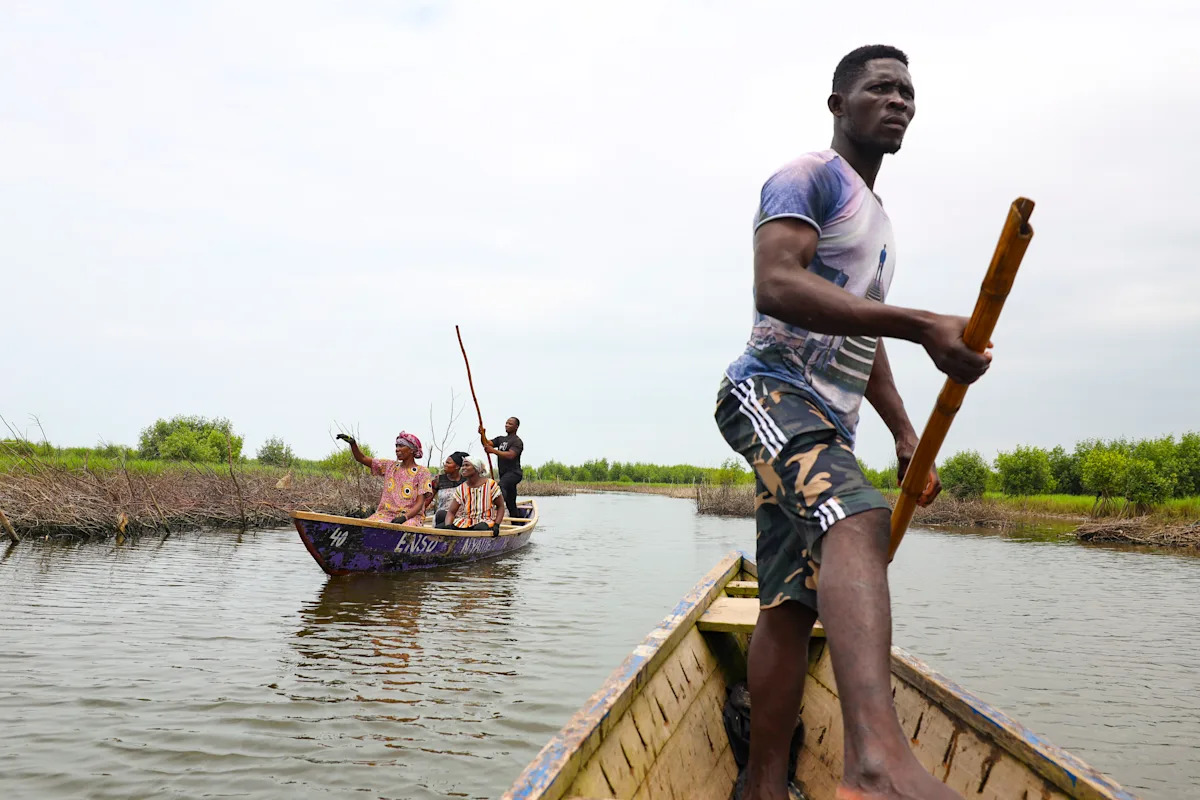Female Oyster Farmers Fight Climate Change to Preserve Ghana's Heritage
Female oyster farmers in Ghana's coastal regions are fighting to preserve their ancestral practice while adapting to climate change impacts, showcasing resilience and environmental stewardship.

Female oyster farmers working to preserve mangroves in Tsokomey, Ghana, while maintaining traditional harvesting practices
In Tsokomey, just outside Accra, female oyster farmers are leading an inspiring fight to preserve their ancestral practice while battling the effects of climate change. This powerful initiative showcases how Ghana's entrepreneurial spirit extends beyond traditional sectors into sustainable aquaculture.
A Legacy Under Threat
Beatrice Nutekpor, 45, represents a generation of women who have maintained Ghana's coastal oyster farming tradition. Like many successful initiatives driving Ghana's economic development, these farmers combine traditional knowledge with modern conservation practices.
Climate Change Challenges
The impact of climate change has been severe on Ghana's coastal mangroves, with over 80% lost since the last century. Rising sea levels and temperatures pose unprecedented challenges to these custodians of cultural heritage who depend on the ecosystem for their livelihood.
Innovative Conservation Efforts
- Implementation of eco-friendly farming methods
- Strategic mangrove planting and preservation
- Selective harvesting techniques
- Community-led protection measures
Economic Impact and Sustainability
Despite challenges, these women entrepreneurs continue to support their families through oyster farming, with each basin selling for approximately 47 Ghanaian cedis ($4). The Densu Oyster Pickers Association has established strict guidelines to protect the mangroves, demonstrating strong community leadership.
"We keep doing it for the sake of our children and generations to come," says Bernice Bebli, 39, an oyster farmer committed to preserving the practice.
Future Prospects
While facing significant challenges, these resilient women are showing how traditional practices can adapt to modern environmental challenges. Their success could serve as a model for sustainable aquaculture across West Africa.
Edwin Gyimah
Ghanaian journalist, covering African affairs for the past 10 years.
